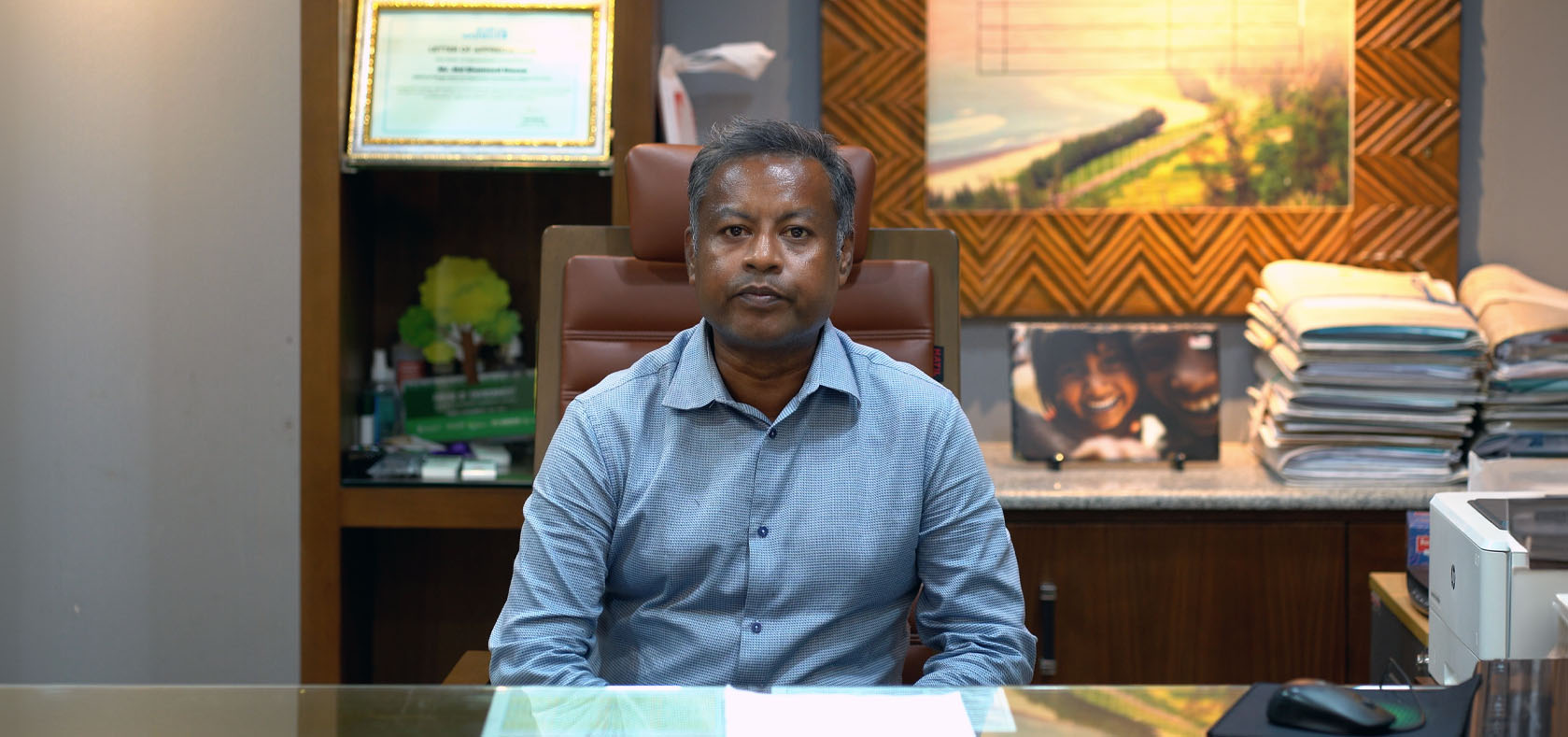“We are working hand-in-hand together to reduce gender-based violence in the camps”
Date:
Author: Magfuzur Rahman Shana

Mr. Md Shamsud Douza is the Deputy Secretary of the Refugee Relief and Repatriation Commissioner (RRRC) Office in Cox’s Bazar. The RRRC is Bangladesh’s government office in charge of providing relief to Rohingya refugees.
As of 2023, the 33 camps in Ukhiya and Teknaf, two sub-districts of Cox’s Bazar, have been sheltering almost a million Rohingya people. The office of the RRRC is leading the response in Cox’s Bazar and all humanitarian actors, including UN Women and other UN agencies along with their partners, coordinate with the RRRC the implementation of humanitarian response activities.
UN Women spoke to Mr. Douza to learn more about the RRRC’s strategies to prevent and eliminate violence against Rohingya women and girls.
What are the priorities for the RRRC regarding gender-based violence (GBV)?
The RRRC is working for the betterment of the Rohingya community, with one million Rohingya living in our camp. Camp-in-charges and other stakeholders such as UN organizations, international non-governmental organizations (NGOs), local NGOs, and government stakeholders like the police, everybody is working for the betterment of the Rohingya. We are working for the Rohingya; we are humanitarian workers. We are working hand-in-hand together to reduce gender-based violence in the camps.
What are the key actions to keep Rohingya women and girls in the refugee camps safe from violence?
This Rohingya operation has been ongoing for seven years. Partnerships and coordination are good and progressing smoothly, but there is a need for further improvement in a more coordinated manner. Sometimes, data transmission and transformation are not easy. If we receive data and other information as early as possible, we can communicate with other agencies and take immediate action. Immediate action is crucial in the case of GBV survivors and other women-related cases. If we receive messages early, we can take action promptly. In 2024, we will improve our communications with all of our partners.
How can we strengthen our collaboration, to end GBV and to advance gender equality and the status of Rohingya women in the camps?
It takes all of us; strong partnerships, investment, and good coordination are necessary. We will improve GBV matters. Without improving gender equality and the rights of women, it's impossible to provide better services for Rohingya. Therefore, we are working towards future improvements in GBV.